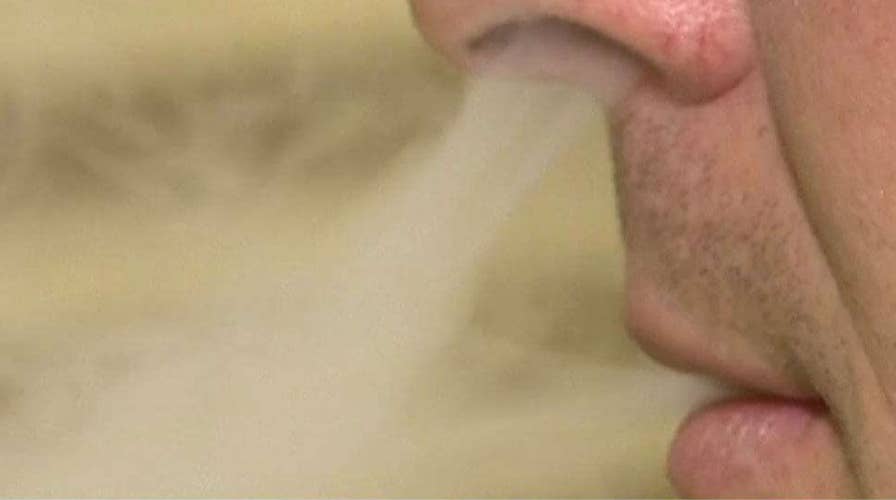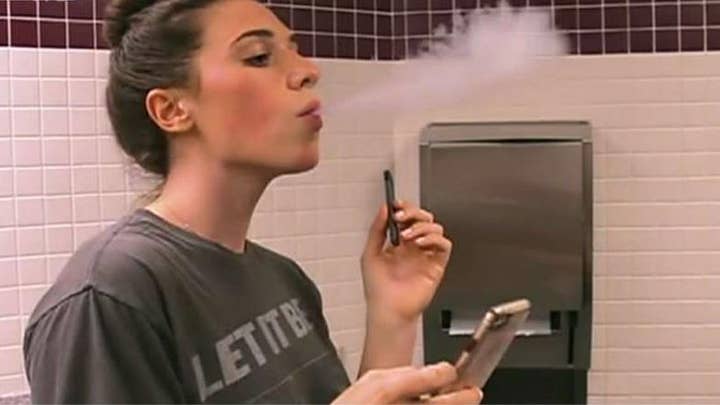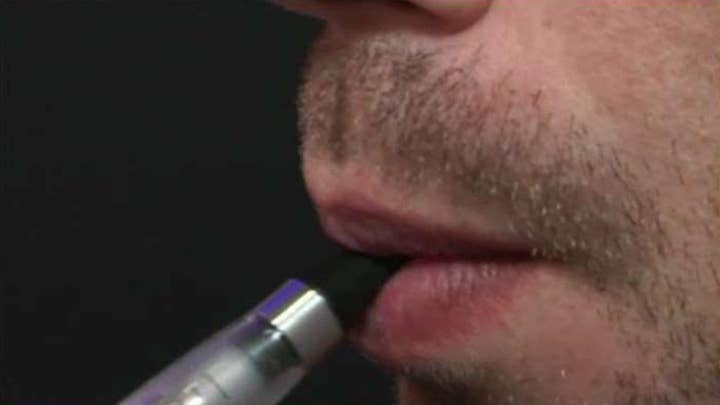Vaping industry's campaign donations complicate regulating business in California
California lawmakers and the state's Democratic Party have received over $2 million in campaign money from the vaping industry; William La Jeunesse reports.
Deceptive rip-off marijuana vapes on the streets of California could be linked to the emerging public health crisis of vaping-related deaths, according to a new report.
Hundreds of people across the U.S. have been sickened in recent weeks and months, mainly by vaping cannabis oil. Seven deaths have been reported, the latest on Monday in California’s Tulare County.
Public health officials aren't sure what's causing the breathing issues, vomiting and other symptoms, but in California they say most patients reported purchasing vapes from pop-up shops or other illegal sellers that are a pipeline for counterfeit products.
TRUMP TAKES AIM AT TEEN VAPING, PROPOSES BAN ON NON-TOBACCO FLAVORED E-CIGARETTES
Here's how it works: Bootleggers eager to profit off unsuspecting consumers are mimicking popular, legal vape brands, pairing replica packaging churned out in Chinese factories with untested, possibly dangerous cannabis oil produced in the state’s vast underground market. The authentic-looking cartridges are sold by unlicensed dispensaries and delivery services, along with rogue websites.
The problem has gotten so pervasive that a major legal brand, Kingpen, is investing millions of dollars to redesign its packaging and product security, AP has learned.
The distributor for another major brand, Heavy Hitters, devotes a section of its website to report phonies and has hired a former federal prosecutor, Priya Sopori, to help the company deal with counterfeiting.
“The danger presented by counterfeit products is just a natural result of not having the money, the resources or the people power to enforce licensing,” Sopori said. “Someone is buying this packaging, buying these cartridges and filling them with whatever. It’s being sold as our brand.”
As marijuana has gone mainstream, versions of e-cigarettes that vaporize high-inducing cannabis oil are one of the hottest-selling items, popular for those who don’t want the smoke that comes from lighting up a joint. In addition to quickly delivering a high, there’s a perception -- not supported by science -- that vaping is a healthier alternative to smoking.
In California’s legal market, the world’s largest, the state requires cannabis oil to be tested before being placed on the shelf for sale. For example, safety checks are made for the presence of 66 pesticides, mercury, lead and other heavy metals, and 21 solvents that could be used in the extraction process, when oil is pulled from cannabis.
But it can be hard for consumers to tell whether a product they’re buying is made by a legitimate company. The phony packaging is convincing to the untrained eye, some even carrying bogus labels that appear to carry state-required test results. Most consumers probably wouldn’t know the difference — until they vape it. The taste and THC level could be significantly different from the authentic product.
To add to the confusion, consumers can have trouble distinguishing legal dispensaries from unlicensed shops, which in Los Angeles sometimes operate in the same neighborhoods and appear indistinguishable.
“My biggest fear of counterfeiting is people are getting an unsafe product, and illegal product, and think it’s coming from our company, a legal company,” says Bryce Berryessa, a board member of the California Cannabis Manufacturers Association whose company, Skunk Feather, produces concentrates and vape cartridges.
CLICK HERE TO GET THE FOX NEWS APP
In light of the vaping-related illness, the Food and Drug Administration (FDA) earlier this month warned consumers to avoid vaping products that contain THC. Though no specific additive, ingredient or substance has been identified in the vaping-related illnesses, health departments in some states — namely New York — have linked some of the illnesses to vitamin E acetate found in marijuana vaping devices.
The Associated Press contributed to this report.











































